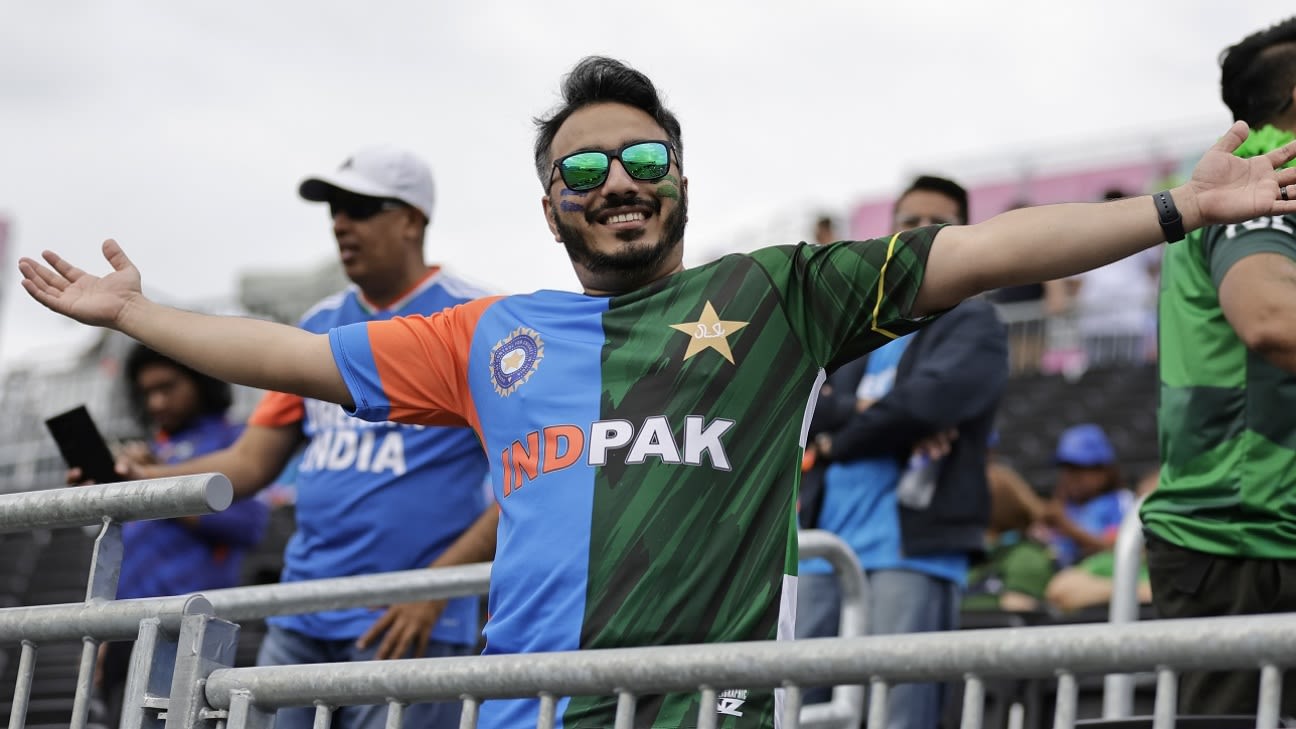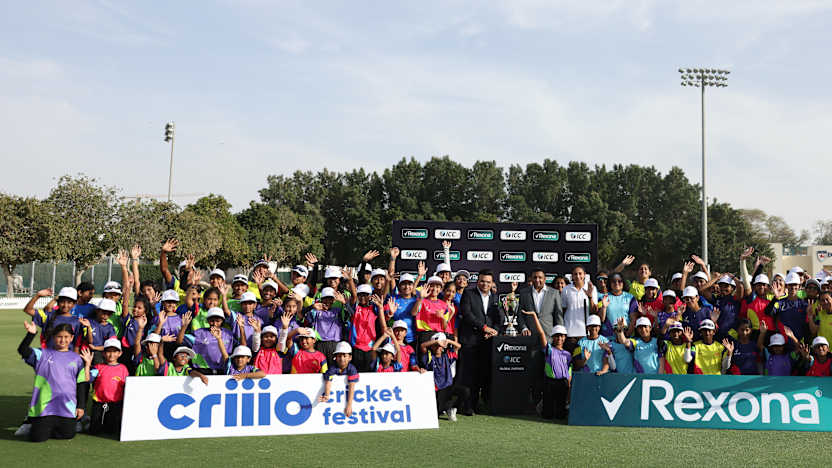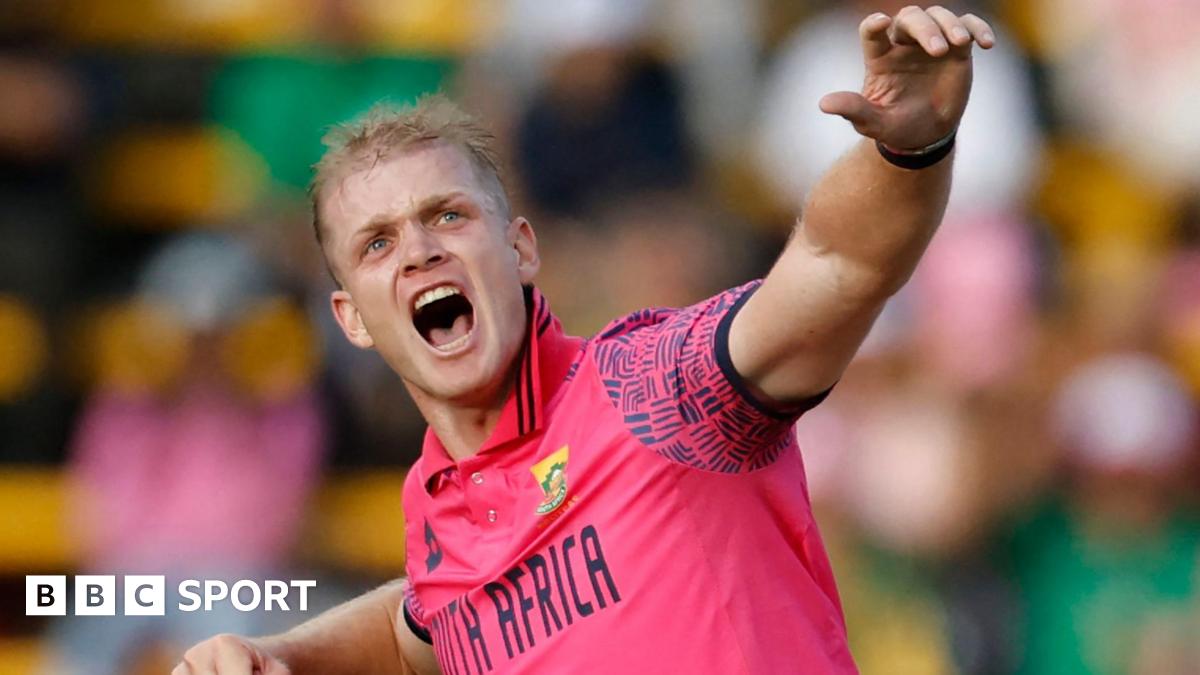The resolution of the India-Pakistan Champions Trophy standoff was a win? Not by a long shot

First of all, a round of applause for cricket for finally ending what seemed at first to be the saga with no end but which quickly became the saga that if nobody cared much about it, might just go away. Second of all, everyone involved can claim a win. The PCB has its equitable and just agreement, the sense that it is being treated as an equal with the biggest board in the game. The BCCI is not going to play in Pakistan, which is what it has wanted from the off. The ICC has a tournament, and all members their ensuing revenues from it. We all get our tournament and perhaps, somewhere down the line, a triangular or quadrangular series involving both India and Pakistan.
Third – and realest – of all, though, better make that a really slow handclap for cricket. If anyone thinks the outcome of this entire sorry drama is a win – least of all for cricket – then it is not the game’s interests they have at heart, no matter how much they tell us otherwise.
Consider the ICC. Their perfunctory statement on the resolution is, by one count, six paragraphs long. By another, less generous, count, it is actually six sentences long, two of which spell out the decision and two being space fillers about a schedule that will come soon and about how many teams will take part. That’s it. Six sentences, with no explanation or context as to why there is a statement in the first place. Why do we need a hybrid model, ICC, when the tournament was awarded three years ago to Pakistan as the sole hosts? And how come this arrangement will last until at least 2027?
Remarkably, it is the only statement the ICC has made since November 9, when the BCCI first informed the ICC that India were not going to travel to Pakistan. Not a single statement about the uncertainty around one of their premier events, a tournament essentially held hostage by two of their biggest members who together form their events’ biggest rivalry. There’s Stockholm Syndrome and then there’s this.
It used to be said, a little disparagingly in the years after Malcolm Speed was forced out as CEO, that the ICC had become a mere event management company and was no longer a global governing body. What, then, might it be left as these days, given its lack of management of the 2023 World Cup and then the fallout from the T20 World Cup this year? An event management company that is no longer managing events at all, or at least not managing them very well?
If you conclude that this is down to a complete absence of leadership, or the total subjugation of the ICC to the game’s strongest constituents, then you would not be entirely wrong. But I think a more illuminating insight can be drawn from Greg Barclay’s recent interview with the Telegraph, in which the outgoing chair deploys a curiously detached gaze on the game, as if he were a fond – but mere – observer, with no real skin in it. The game’s a mess, isn’t it? Lost a bit of perspective, hasn’t it? Sure hope Jay Shah uses India to grow the game and not put it under the yoke of India. Gee, somebody should really do something about all this. Er, who’s going to tell him, guys?
And so, in this reflection, the ICC has stood aside and shrugged, watching the game not grow but grow more unruly, pulled here, pushed there, stretched out so that it loses all shape and meaning. Yep, it’s a mess, fellas. Yep, there’s challenges. If only somebody would do something about it.
It used to be said the ICC had become a mere event management company. What, then, might it be left as these days, given its lack of management of the 2023 World Cup and the fallout from the T20 World Cup this year? An event management company that is no longer managing events at all, or at least not managing them very well?
If there’s a smidgen of sympathy here, it’s because the ICC has been wedged in between in this anti-romance between the BCCI and PCB. Nothing brings out the worst in either board than having to deal with the other. And this time the charade that the wrangling is anything other than a proxy for their governments to point-score has been especially risible.
Mohsin Naqvi has repeatedly argued that politics and sport should not be mixed. At the best of times this is a reductive line. For Naqvi, concurrently, the incumbent PCB chair and Pakistan’s interior minister (and an especially influential one) it’s a supremely disingenuous line to push. To the extent that it feels like it’s pure trolling.
In India, meanwhile, cricket is to politics as smoke is to mirrors, which, given the BCCI secretary had a direct line to the sitting home minister, was something. The BCCI said it was the government not allowing the team to travel. The government didn’t say anything. Until one day, in response to a question, the ministry of external affairs referred to a BCCI statement on the decision. The BCCI, said the spokesperson, had cited security concerns in Pakistan and so was unlikely to send the team there.
The BCCI had made no statement at all, then or now; had, in fact, made clear the decision was not in their hands: Rajiv Shukla, the forever BCCI grandee, once said to the media the decision was not the board’s. That was half the problem, that the PCB wanted to know from the BCCI (and not the ICC) why it wasn’t going to send its team, and what the Indian government had said. And security concerns? A security plan had been presented and no objections raised at an ICC meeting in October. None of the eight Full Members who have travelled to Pakistan since 2019 have raised any issues, nor the teams who are actually in the Champions Trophy.
And in the middle of this impasse, Jay Shah ascended (or should that be was demoted?) to the ICC chair. One day he was fighting for the BCCI’s interests. The next, a switch was flicked and he was meant to be fighting for the ICC’s interests. It’s quite the to-do list to have left on the last day of your old job to pick up on the first day of your new job. It was entirely fitting. This is, after all, a members’ body in which members routinely do things that undermine the members’ body, and then, as members of said members’ body, bemoan those undermining actions.
Still, at least everyone won. Only, if this is what cricket winning feels like, may we never find out how cricket losing feels.












